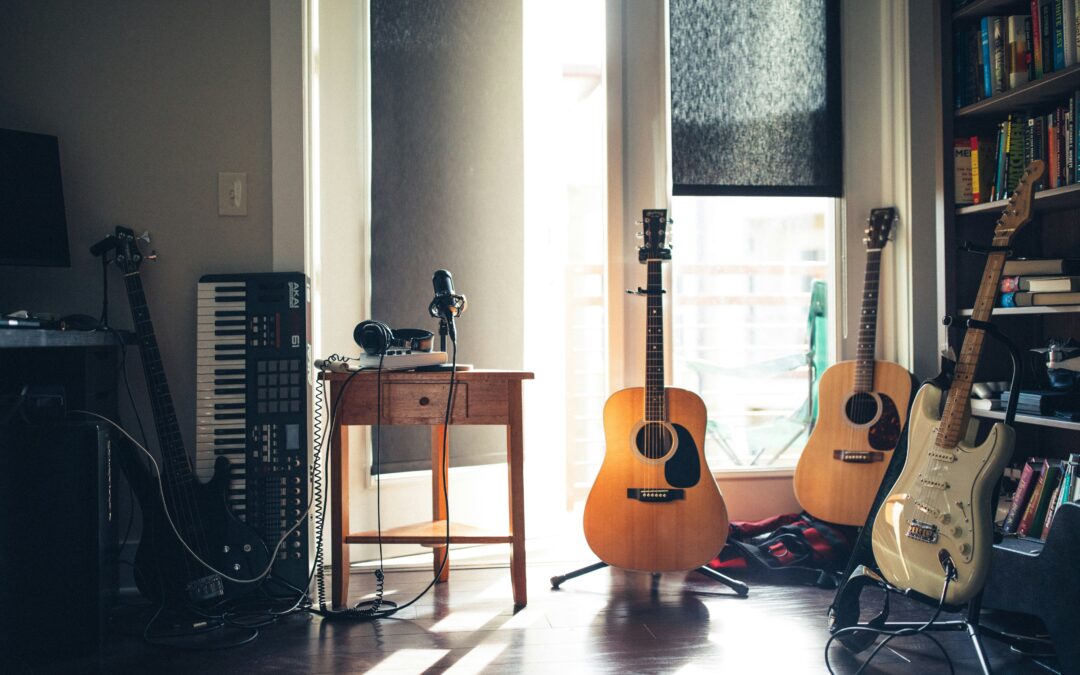Music & Brain Development
Did you know that music can impact brain development in great ways? That’s right! Music is the essence of life and its benefits go beyond just improving your mood.
In this post, we look at how music and brain development are closely connected.
Playing a Musical Instrument Develops Better Self-Awareness
Any and every creative task is a form of self-expression including instrument-playing. When you play a musical instrument, you are essentially providing an outlet for your previously untapped energy to release.
You don’t have to be an expert at playing either. You just have to find a way to express yourself through hand movement, emotions, and thoughts. And, all of the feelings that were previously lying dormant would come to life. This all happens as the music becomes a sort of vehicle that drives those untapped emotions and feelings out.
Music is a unique outlet for self-expression that no other method or way provides. Whenever someone gets the opportunity to express themselves with their peers, it allows them to nourish their creative side.
As a result, self-awareness grows. Therefore, playing an instrument is easily one of the finest ways to grow yourself as an individual.
Combating Cognitive Decline and Dementia
As of right now, there’s no known cure or treatment to prevent or stop a disease like Alzheimer’s (a highly chronic disease). There’s also no known way to slow down neurodegeneration.
The only available treatments so far only slow down the pace of the disease and its advancement.
The use of psychosocial interventions for the treatment of AD became more prominent since the 1960s. This frequency increased with the onset of the new millennium. Among those interventions – the most popular one is Music Therapy.
Many therapists strongly emphasize on the inclusion of music as a promising intervention tool in AD patients and suggest that it be started at the earliest possible.
If you’re a caregiver or a nurse that looks after such patients you should consider music therapy. Try to use music lessons more often as a non-pharmacological method in AD patients. You could get greater success in getting them to copy better and also improve the quality of communication.
Let’s not forget music is excellent for helping with their cognition and make them better adapt to their surroundings. It elevates the overall quality of life during a difficult time in life.
Musical Training Strengthens the Brain’s Memory Function
Engaging in a creative process such as instrument playing is much like hitting the gym; except you’re doing it for your brain.
When you engage in new practices and challenges, it develops new neural connections in your brain. It’s just like how physical exercise helps to develop muscles in your body.
Playing a musical instrument is particularly good as it involves both sides of your brain. While the left side controls logic, the right side is more about performing creative tasks. Playing an instrument engages both sides of the brain. As a result, you’re able to remember things better and your memory also strengthens.
Helps Keep the Mind Sharp
With age, the size of our brain reduces as it physically shrinks in volume. This is a major factor that greatly impacts overall mental health.
Even some of the healthiest and most active brains become slow with age when it comes to things like –
- Recalling memories
- Reacting to situations
- And, processing information quickly
By learning and playing an instrument you can counteract these effects. You can majorly slow down the degeneration of brain cells and stay sharp overall.
The University of Montreal conducted a study in 2017 that talked about how musical training stimulates the multisensory processes in the brain.
The results of the study were promising. They also showed how music can notably bring down the reaction time of the brain when it comes to multisensory stimulation.
Musical Expression helps to Reduce Stress, Anxiety, and Depression
According to an article by Forbes magazine, many creative ways of self-expression bring better health and happiness. One of the first noticeable effects of those creative endeavors is an immediate lowering of anxiety, stress, and depression.
The article went into detail talking about the science behind how therapeutic dynamics occur when you play an instrument. It’s thought that when you engage in a repetitive creative motion such as strumming a guitar or playing with piano keys, it triggers dopamine – the ‘feel-good’ hormone.
A regular release of these natural happiness hormones should explain a more uplifting sense of health, wellbeing, and happiness.
This should also explain why it could help your mental health. Let’s not forget, it’s the perfect alternative to the rush that is caused by alcohol and drugs.
That’s not all! Playing musical instruments also brings down high blood pressure and normalizes them. This is again related to greater emotional and mental calm.
Improves Grey Matter
Many studies have observed the brain scans of people who play instruments and those who don’t. And, there seems to be a major difference in the brain structure of these two kinds of people.
The most notable difference of all is in the corpus callosum – a collection of fibers that keep both sides of the brain connected. This area is bigger in musicians and those who regularly play at least one musical instrument.
Other than that, the parts of the brain that control hearing, movement, and visuospatial abilities also appear to be bigger in professional keyboard players.
Playing a musical instrument clearly increases the amount of gray matter in different regions of the brain.
Bottom Line
As you can tell, there’s no time like right now (as we’re living in the pandemic) to order a music instrument, go online and learn some notes. Alternatively, you could always go for online music lessons.



